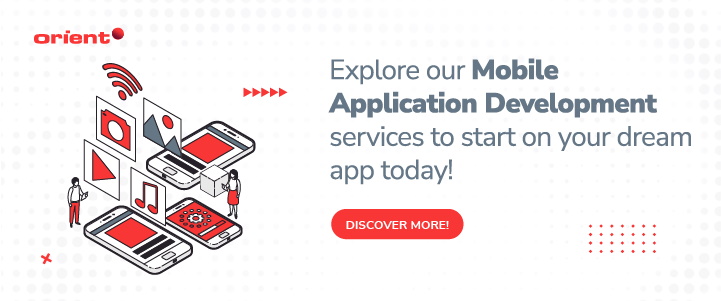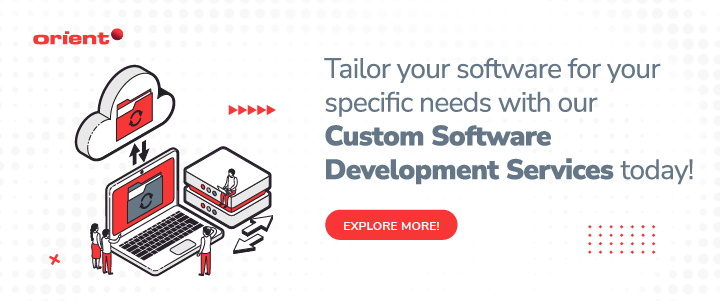Mobile app development technology refers to the various tools, frameworks, components, libraries, and other technologies used to create applications for mobile devices. Examples of mobile devices include smartphones, laptops, tablets, and smartwatches. The two most dominant mobile platforms on the market are Android and iOS.
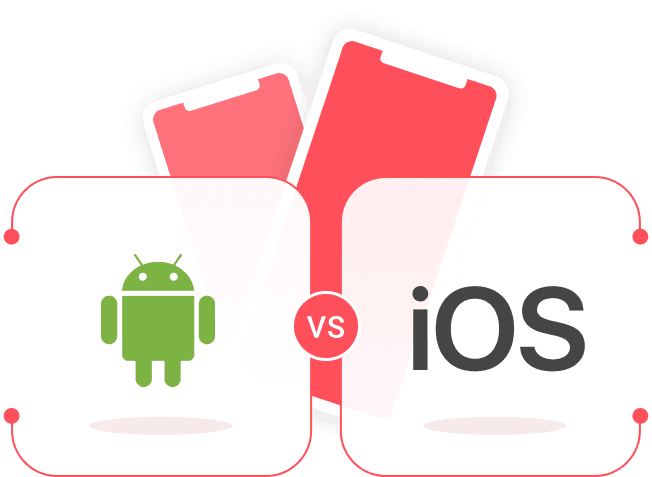
What to consider when choosing mobile development technologies
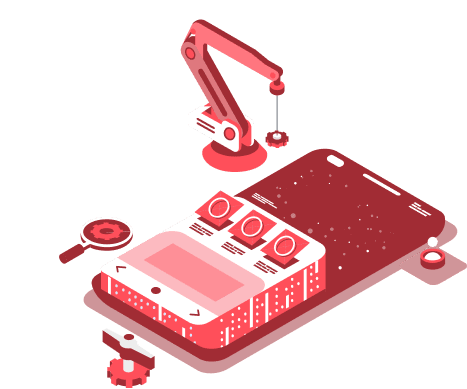
When developing applications for mobile devices, special consideration must be made to the limitations of each device.
These limitations range from how a user interacts with the device, its computing power, the screen size, the unique features and capabilities of a specific device, the platform – be it Android or iOS – and whether the application will be used on multiple platforms.
That last point is significant, as it should be established whether you plan to develop for one or multiple platforms – either now or sometime soon.
Understand the unique features of each mobile platform
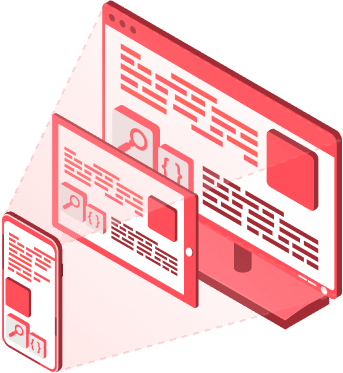
Each platform has its special features, capabilities, and limitations. Therefore, you must design the application in a way that allows it to harness the full potential of the mobile development technology – while still being easy to use, secure, scalable, and accessible to the widest possible amount of people.
Otherwise, you risk creating an application that fails to deliver the kind of stellar performance and capabilities that your target audience expects of you. This can result in lackluster sales, a sub-par user experience, and a failure to achieve your unique business goals and objectives.
Don’t believe us? Consider that up to 25 percent of users abandon an app after only one use, the importance of making a great first impression cannot be understated.
Which mobile app development technology is right for you?

For this reason, it’s vital that you take the time to familiarise yourself with the different mobile technologies available to you. Then, choose the right one for you based on your project requirements.
This way, you will enjoy a more streamlined development cycle, and you’ll deliver a much higher-quality product – one that you will be proud to share with the world.
Native vs Cross-platform development
First off, you need to decide whether you plan to build a native or cross-platform mobile application, as each option has pros and cons.
Native
Native applications are beneficial if you intend to develop for one platform. This is because you have the opportunity to harness the full potential of the platform in question. It enables you to gain access to and utilize a wide range of platform-specific features.
For example, iOS has exclusive features like iMessage, AirDrop, and App offloading, while Android has exclusive features like customizable home screens, expandable storage, and split-screen support. So, when you develop an application for a specific platform, you have the time and resources necessary to take advantage of these exclusive features.
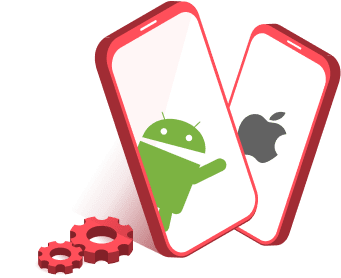
Cross-platform
Cross-platform mobile application development, on the other hand, is the process of developing an application with a single code base to run on multiple mobile platforms.
There is a wide range of cross-platform mobile app development technologies available. This makes it easy for developers to conceptualize, develop, and launch a beautiful and functional application on multiple platforms simultaneously. Some of the most popular cross-platform mobile technologies include Flutter, React Native, and Xamarin.
While each of these platforms has its unique features and benefits, one thing that is consistent for all is that they enable developers to write a cross-platform application with just one codebase.

Advantages of cross-platform mobile application technologies

Faster development cycle
Without writing separate code to cater to different devices and platforms, this dramatically speeds up the development cycle, provides a more consistent user experience across all platforms and devices, and enables a business to reach a wider audience across several platforms.
Easy to update and maintain
Another benefit to cross-platform mobile development is that it’s relatively quick, easy, and inexpensive to maintain and update these applications.
Why? Because you don’t have to update each application for a different platform or device manually. Instead, you can make the necessary enhancements across all versions and then simultaneously update all versions of the same application at once.
Disadvantages of cross-platform mobile application technologies

Lack of access to unique features
For one, while it is possible to access the native API of a given platform – be it Android or iOS – with the appropriate SDK (Software Development Kit), the number of features available to you may not be the same as if you took the native development approach. As a result, you may not fully utilize the wealth of features available to a specific platform.
Although, if these kinds of features are not essential to the success of your application, then this could be a reasonable trade-off, as the benefits of having a faster and more streamlined cross-development cycle will outweigh the con of having fewer features.
Potential for reduced performance
Another common downside of cross-platform applications is the potential for reduced performance.
If your mobile application is particularly complex, it may not fully harness the computing power of a specific platform, which could mean slower performance. However, if your application is relatively light and simple, the performance difference between a native and cross-platform application is slim.
Different types of mobile app development technologies

With all this being said, what kind of technologies can you expect to come across in the world of mobile development technology? As previously mentioned, some of the most popular platforms include Flutter, React Native and Xamarin.
These mobile development technology platforms are popular due to their ease of use and accessibility, robust security features, flexibility. Due to them being compatible with various third-party libraries and frameworks – and strong community support, which makes it easy for developers to troubleshoot, learn new ideas, and solve even the most challenging problems relatively quickly.
Advantages of different mobile technologies
To help you better understand the differences between each of these mobile technologies, here is a quick breakdown of their unique advantages:
Flutter
- Hot-reload enables developers to implement and see their changes take place in real-time.
- Easy to create beautiful and functional UI’s thanks to the widgets and other features provided by Flutter.
- Flutter’s documentation is clear, simple, and easy to understand, and it provides answers to virtually any concern a developer has – significantly speeding up the development cycle.
- Compatible with different IDE’s including Android Studio (IntelliJ) and VS Code.
React Native
- Since React Native is based on JavaScript, the framework supports both Android and iOS platforms, so you only need to code once.
- Features a massive range of components for Android and iOS, enabling developers to build mobile applications with a native look and feel.
- You can use as little or as much of React Native as you like, whether you want to incorporate it into an existing app or start from scratch.
- React Native apps are compiled into natively written code, enabling them to perform and function just like their native counterpart with virtually zero compromise.
Xamarin
- Xamarin uses a single language, C#, to create apps for both Android and iOS platforms, which enables developers to give their applications a native look and feel.
- Based on the .NET framework, Xamarin is compatible with a range of useful .NET features such as Asynchronous programming, Lambdas, and LINQ.
- Both Android and iOS versions of Xamarin feature built-in source code compilation (ARM for iOS) and (Just-in-Time compilation for Android), which us automated and tailored to handle specific issues like memory allocation, garbage collection, and platform interoperability.
- Xamarin supports building applications for both Apple and Android smartwatches, with developers having the freedom to use Visual Studio for both Mac and Windows to build these applications.
- Xamarin is flexible enough to work with platform-specific SDKs like Cocoa Touch for iOS and the Android SDK via the C# syntax.
Of course, regardless of which mobile application technologies you use, you must choose the right tools, ones that complement the platform and devices you intend to develop the application for.
This way, you will have an easier time making crucial design choices, experimenting with different ideas for your application, and making sure the official launch goes smoothly.
Considerations when developing a mobile application

When it comes to developing mobile applications, you have a lot of important design choices to make. You have to take into account the unique features and capabilities of the platform you develop for. You have to cater to the different technical specifications of the devices you plan to develop for.
These specifications can include different screen sizes, different touch-screen gestures, varying levels of performance power, different requirements that apply to the Google Play and iOS App Store, and the amount of support you provide to past, current, and future versions of both Android and iOS.
Ask the right questions. Understand your target audience

During the development cycle, you’ll need to ask yourself a lot of important questions, such as:
“Do you target the latest and greatest devices to provide the most ground-breaking user experience possible? Or should you scale back your ambitions so that your application works on a wider range of mobile devices, both new and old?”
For this reason, it’s a good idea to establish those guidelines early so that you will enjoy a more streamlined development cycle and will receive a final product that meets your unique requirements.
Most importantly, you’ll need to have a deep understanding of what your target audience expects of your application, the kind of devices they use, and the kind of similar applications they are already using.
What to look for in a mobile app development company

Fortunately, when you enlist the help of a reputable mobile app development company, they can help give your project a strong sense of direction and set you on the right path to a successful outcome.
They can also define your unique mobile app technology needs, help you decide which operating devices and systems to target, as well as choose the right frameworks to fit your individual needs. Most importantly, they can share with you the relevant examples of past projects they’ve worked on. This will help give you an understanding of their level of skills, knowledge, and experience related to your project.
This way, you will have an easier time deciding if the company has what it takes to bring your vision to life while giving you the confidence that you made the right choice.
To request a free, no-obligation quote for your mobile application development project, contact Orient Software today.
